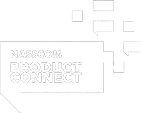Research
Identifying Student Learning Styles
Date : June 2022
Everyone learns and understands concepts in different ways. Whereas one student may prefer to read about a concept and engage in solving practice questions on the concept, another student may prefer to watch a video and jump into taking a test on it. At Embibe, we have over 10+ years of data on students interacting with content and questions on the platform. We are constantly mining this data to discover surprising insights into student behaviour. Student learning style identification is….















































